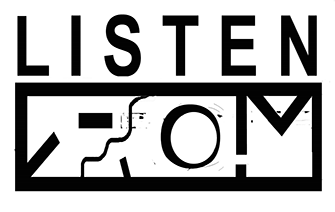Image credit: Music Victoria
OFFICIAL STATEMENT
RE: commentary surrounding Bluesfest and the gender inequality of their initial 2019 lineup announcement
What LISTEN do
LISTEN is a grassroots, entirely volunteer-run not-for-profit organisation. Led by a collective of individuals heavily involved in the Naarm (Melbourne) music community, our interests are reflected in the wide range of projects that LISTEN run and are involved in, including live music events, panels, a conference and an offshoot record label.
LISTEN participates in music industry events and particularly advocates for women, queer and gender diverse artists. LISTEN is invested in dismantling the multiple structures that prevent diverse artists from being seen and equally valued in the music industry, and highlighting the ways forces like racism, transphobia and ableism shape artists’ and audiences’ safety and inclusion. In 2018 LISTEN has built databases of women and gender non-conforming individuals working in the music industry. LISTEN has successfully lobbied and written a policy document for a taskforce against sexual harassment and assault in music venues, which is now government-funded and implemented across Victoria.
Bluesfest lineup critique
LISTEN posted on our social media on Wednesday morning, critiquing Bluesfest’s 2019 first lineup announcement.
Our critique focuses on why it is problematic to platform predominantly men, and no women of colour in a first announcement for Bluesfest’s 2019 festival.
First announcements indicate who a festival believes has significant value; they set the tone of a festival and draw the bulk of ticket sales. There has been plenty of discussion in the last few years about Australia’s music diversity problem, and why lineup announcements should prioritise diversity. LISTEN saw Bluesfest’s first announcement as a missed opportunity to demonstrate they are engaged in these conversations, and to showcase the great many artists who we see as deserving of a headline spot in a first announcement.
LISTEN has made no comment about previous Bluesfest lineups that include women, queer and POC artists. Our issue is not with the festival itself, nor the women who have already been booked to play. Our issue is with the message repeatedly sent by Australian festivals that women and non binary artists, especially those who are Indigenous and artists of colour, do not deserve to be announced first.
Response to subsequent criticism
In response to Bluesfest’s description of LISTEN as a ‘classic single interest group’, we would like to point the organisers in the direction of our website, our last four years of action, and the many areas of the music industry in which LISTEN is involved.
We do often use our social media pages to give an additional platform to other activist groups for example, two thirds of our Bluesfest post images were taken from Instagram page @LineupsWithoutMales.
Media pages like @LineupsWithoutMales and @LineupsWithoutWhites are visually powerful and spark crucial commentary, which should not be underestimated. But reducing LISTEN’s work to a single post on our facebook undermines the thousands of volunteer hours over the past five years that women, gender non-conforming and LGBTQIA+ people have given to this organisation across many events and endeavours.
When we identify an issue with a major festival online and are met with dismissive comments and accusations, it is clear that those commenting have not engaged with LISTEN before. We invite these commenters to attend our events, listen to artists and speakers we showcase and meaningfully engage in conversation and action.
We want to particularly emphasise how abhorrent we find Bluesfests’ comments likening our critique to the latest vilification of the South Sudanese community. Positioning themselves as victims through this wildly inappropriate analogy illustrates their sheer blindness to power dynamics and how structural oppression is currently playing out in this country. The institutional power held by one of the biggest music festivals in the country is not comparable in any way to that of a grassroots organisation. Using one of the most vulnerable communities in Australia who are systematically targeted by our racist government as a comparison for their lineup critique is unacceptable.
A broader problem
We agree that the underrepresentation of women and gender diverse people is a systemic problem in the music industry. This makes it all the more important that these conversations take place and are depicted accurately in the wider music media. Bluesfest is a festival that carries great economic and cultural weight within Australia and needs to shoulder the attendant responsibilities, rather than holding themselves above reproach or criticism.
